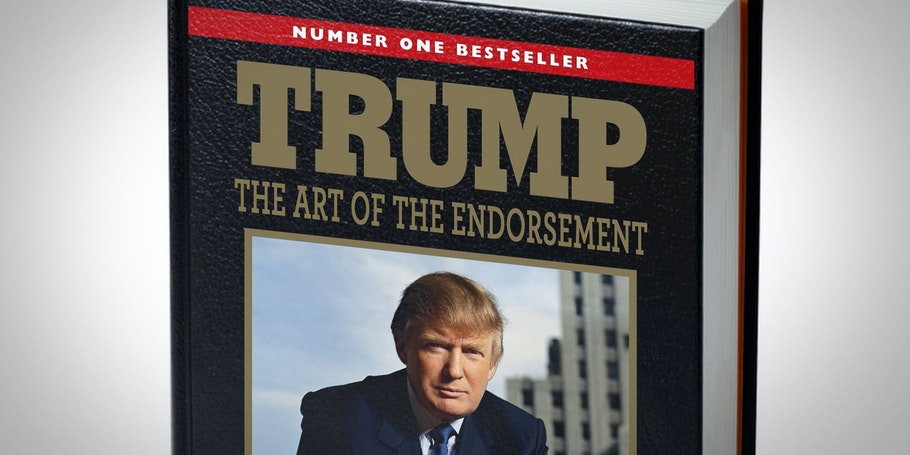
The former president has continued to take an active role in shaping the future of the Republican Party
Most ex-presidents are happy to parlay their White House tenure into millions of dollars on book deals, speaking engagements, and high-level corporate advisement and investing. They may engage in backstage political string-pulling from time to time, but in public they act as though they’re above politics and have moved on pleasantly into their emeritus years.
Not Donald Trump. The trappings of being a presidential retiree never attracted him.
He was a millionaire to begin with and always a bigger celebrity than any former president. He has the energy and verve of a much younger man. He never tires of the spotlight, and deal-making is in his blood. All these factors, including his well-documented love affair with himself, will not allow him to sit on the sidelines while he still believes he can effect change.
More to the point, though, Trump’s got something to prove. He wants to set the record straight on 2020 and its aftermath. He left office under a cloud — being tied to January 6, a show-trial second impeachment, and his refusal to concede the shady 2020 election. He wants to reclaim what he feels was stolen from him and from the American people — his rightful shot at a second term.
The most effective way for Trump to remain a viable political commodity is through endorsements of other candidates. Helping to get the right people elected in the right places demonstrates that Trump still has juice. It will also help him build an effective national support network should he choose to run in 2024.
So, how’s he doing?
Since taking office in 2017, Trump has practiced what can only be called the Art of the Endorsement. He got heavily involved in federal and statewide elections when he became president. He recognized early that Democrats and the media were out to sabotage his presidency, so he bypassed the usual channels and went straight to the public.
Trump did more than seek like-minded candidates in key districts and states. He chose high-profile races and candidates to send a message to the media and the national electorate. With these endorsements, though, came the risk of high-profile stumbles and gleeful media attacks about his diminished political clout. But Trump persevered.
Throughout his four years in office, Trump issued 305 endorsements in congressional, statewide, and special elections. His win record in the regular season was 200-87, which included mostly incumbents and a few safe bets, but 63 of those wins were in open elections or elections in which Republicans challenged the incumbent. Notably, Trump’s presidential endorsement record in special elections was 13-5. Special elections are traditionally an area where presidents are reluctant to get involved. These contests generally draw more national attention than they deserve and are often framed by the media, fairly or otherwise, as referendums on a president’s performance. Here, Trump’s desire to jump into the fray certainly paid off.
Trump’s post-presidential endorsements have been closely watched, and with good reason. If his candidates do well, then his 2024 presidential run is all but assured. The mainstream media, still suffering from Trump Derangement Syndrome, has trumpeted Trump’s waning influence after last week’s primaries, particularly in Georgia, where his candidate for governor, former Senator David Perdue, got walloped by the incumbent, Brian Kemp.
Karl Rove is one of the most astute political strategists of our time, but he too is afflicted with TDS. His take on the Ohio and georgia primaries was that Trump’s impact was either hollow or a net drag on the Republican Party.
What Rove fails to mention is that Kemp’s victory in the gubernatorial primary was a foregone conclusion. Trump’s endorsement of Purdue was never going to move the needle, but he felt compelled to make a statement because he believed that Georgia was one of the states in which electoral malfeasance cost him reelection. Call it ego, call it hubris, but Trump may have known from the start that Purdue couldn’t deliver.
Politico likewise has tried to mute Trump’s political impact, reporting after last week’s primaries that “his win-loss record took a hit.” Well, it wasn’t a big hit. Of the 101 endorsements Trump has made in primaries that have already taken place, his record is 94-7. Again, a majority of those were for incumbents and in safe districts, but it’s hardly a signal that the bloom is off the rose.
There are many more primaries ahead, and of course the big test of Trump’s political clout will come in November. The bottom line is that Donald Trump is still a powerful force to be reckoned with, despite the best efforts of Democrats, the Never-Trump wing of the Republican Party, and the mainstream media. He still manages to communicate his message and keep his brand alive, even though all the major social media outlets have conspired to silence him. The news media plays up his few defeats and chooses to ignore his multitude of victories.
Trump rose to power in the first place because the media and his political opponents underestimated him, tried to diminish him, and then bent the narrative to their own will. They don’t appear to have learned their lesson. Perhaps Trump will school them once again.





